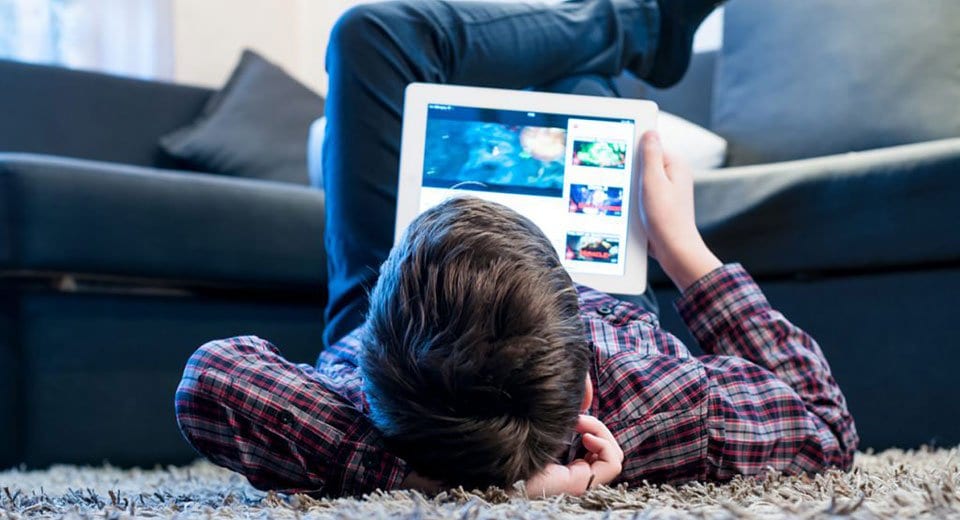Is moderate screen time ok for kids?
Kids who spend two hours or fewer on their devices or in front of the TV each day don’t appear to suffer any ill mental health effects, as compared to those who spend more time each day glued to their phones or tablets.
A recent study about the effects of screen time on kids brought a flurry of headlines and multiple interpretations. For the study, published in the British Journal of Sports last month, researchers analyzed data from earlier research involving more than 125,000 participants. They found evidence that limiting children’s screen time, especially under the age of 14, was a good practice.
Children who spent at least five hours a day staring at a screen were 80 percent more likely to be depressed as kids who spent less time with TV and electronic devices, according to a report by Reuter’s. But, the report went on to say that there was little difference in depression between kids who got no screen time and those who got about two hours a day.
“The article from Reuter’s actually said that screen time in moderation is not linked to youngsters’ depression. That is a long leap from saying that it is good for them,” said pediatrician Alexander Heard, MD, at Cape Cod Pediatrics in Forestdale. “There are lots of other health benefits that are not achieved by watching screens, like exercise and social interaction.”
Dr. Heard said the American Academy of Pediatrics recommends no more than one to two hours of screen time a day or 10 hours a week. But they also make a statement that less time is probably good.
We are clearly not coming even close to those numbers in this country, according to the Academy. In the same report as the recommended guidelines, the Academy notes that American children between the ages of 8 and 10 average nearly eight hours a day of screen time with various types of media. Older kids are estimated to spend more than 11 hours a day – hours they could spend playing outdoors, riding their bike, reading, doing sports or learning a musical instrument.
“I think we’re having a lot harder time these days unplugging from the electronic world,” Dr. Heard said. “It really is pervasive.”
He points out that some grocery stores have TV’s right in the checkout aisle. If you take your children out to dinner, a lot of restaurants have four or more big screens playing at the same time.
“It is very important for children to unplug,” he said. “That way they can start to process the information they got that day and some of the experiences they had. It gives them time to think about ideas and be introspective in how they’re thinking rather than reactive.”
All screen time is not created equal. Television is widely known to be passive, but the Academy says that occasionally watching a movie together as a family can be beneficial. Turning off the television after the movie and having a discussion about how the movie adheres or doesn’t to the family’s values can be a positive thing. However, using a television as a babysitter is never recommended.
With the rise of video games, cell phones, tablets and laptops, television viewing has actually fallen off in favor of more interactive screen time – some good like playing games with friends, and some very bad like cyber-bullying.
“It’s safe to say that screen time is not a great idea,” Dr. Heard said. “Now my 15-year-old son would say that screen time is actually socialization because he chats with his buddies online as he’s playing these video games. To his credit, there may be a socialization part to it. But then the obvious reply to that is that you should probably know who you are playing with on the computer. The random global chats can be dangerous.”
